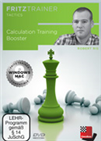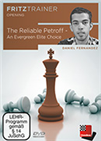All set for the semifinals
 Unlike the first stage in Berlin, all four pools at the Belgrade Grand Prix had clear winners after six rounds of classical games. Since the potential tiebreaks were scheduled for Tuesday, all four semifinalists will get a rest day before the start of the knockout stage. A few of the players who did not make it into the knockout are now fully out of contention in the fight for the two spots in the Candidates granted by the series.
Unlike the first stage in Berlin, all four pools at the Belgrade Grand Prix had clear winners after six rounds of classical games. Since the potential tiebreaks were scheduled for Tuesday, all four semifinalists will get a rest day before the start of the knockout stage. A few of the players who did not make it into the knockout are now fully out of contention in the fight for the two spots in the Candidates granted by the series.
Anish Giri and Richard Rapport went into round 6 only needing a draw to qualify. Rapport had little trouble getting the half point with the white pieces against Alexei Shirov — Shirov later confessed that he was happy to get a safe draw with black given his subpar performance in the series. Giri, on the other hand, was surprised by Nikita Vitiugov’s preparation in ‘the sideline of a sideline’ (Giri), but played precisely enough to equalize and thus win his pool.
 This DVD allows you to learn from the example of one of the best players in the history of chess and from the explanations of the authors (Pelletier, Marin, Müller and Reeh) how to successfully organise your games strategically, consequently how to keep y
This DVD allows you to learn from the example of one of the best players in the history of chess and from the explanations of the authors (Pelletier, Marin, Müller and Reeh) how to successfully organise your games strategically, consequently how to keep yIn pool A, Dmitry Andreikin and Sam Shankland were tied for first after five rounds. Shankland could not get much with black against Alexander Grischuk and signed a 30-move draw. Andreikin, on the other hand, played a wild game against Etienne Bacrot. Both players missed winning chances, but it was the Russian who prevailed in the end. Shankland reflected:
There’s not much more frustrating than needing 0-1 or 1/2-1/2 for a playoff and watching -6 go to -2 to 0 to +20 on moves 37-40. Congrats to Andreikin of course, I have to respect his fighting spirit in the final round.
Finally, in pool D, Shakhriyar Mamedyarov was unable to beat leader Maxime Vachier-Lagrave. Once the elite players split the point, MVL had to wait for the result of the other game to know whether he would get a spot in the semis without needing tiebreaks, as Yu Yangyi was in position to catch the Frenchman with a win over Alexandr Predke. The Chinese tried hard to create imbalances, but ended up getting into an inferior position. Predke made the most of the situation and scored his first victory of the event.

On to the knockout
Pool A: Wild swings
Out of a Queen’s Gambit Declined, Dmitry Andreikin and Etienne Bacrot showed great fighting spirit to create what turned out to be a very entertaining game. Andreikin, playing white, gave up his queen for a knight and a rook, and was soon after the first one to miss a major chance in a double-edged position.
28.Rac1 doubles the rook on the open file and continues to put pressure on Black’s undeveloped position, but 28.Re1 is the most precise in this position — with the rook on e1, White is ready to play Nd3, both threatening to double his rooks on the back rank and to play either Bb4 or Bf4 if needed.
The sharp struggle continued, with Andreikin getting outplayed in the run-up to the time control. Bacrot had a massive advantage according to the engines, but first had to survive White’s insidious attack.
Here the Frenchman grabbed the material with 37...Rxa5, when the cold-blooded 37...Kf5, escaping potential mating threats in the kingside, was the best alternative. Of course, Andreikin had to go all-in at this point, and played 38.g4
Again, Bacrot needed to prioritize his king’s safety, and 38...f5 was the way to do it. His crafty 38...Nd7, on the other hand, was quickly responded by 39.Rxd7 — with his move, Bacrot deflected the rook from being able to block a check from c1.
What Andreikin had foreseen, unlike his opponent, is that 39...Qb1+ is not dangerous for White. Moreover, it turned out to be the game’s decisive mistake.
 In this video course, twenty-nine examples with multiple questions are presented in the interactive format, which is ideal for a range of playing strengths. Step by step you will be taken through the complex positions.
In this video course, twenty-nine examples with multiple questions are presented in the interactive format, which is ideal for a range of playing strengths. Step by step you will be taken through the complex positions.
Black’s attack is short-lived: 40.Kg2 Qe4+ 41.Kg3 Ra3+ was followed by the winning 42.Kh4
There are no more checks for Black, and there is no way to defend against White’s mating threats. In fact, Bacrot resigned here, with mate-in-8 on the board.
Pool B: Tabatabaei scores
Playing white against the lowest-rated player in the field, Pentala Harikrishna entered a theoretical line in which he gives up an exchange for a pawn and the bishop pair. The Indian grandmaster faced a very well-prepared Amin Tabatabaei, though, as the Iranian star got an edge both on the clock and on the board in the middlegame.
Black here went for complications with 28...b4, prompting his opponent to spend over 12 minutes on 29.Bxd5 when 29.bxc4 was a better continuation. Harikrishna had given up the bishop pair, and soon saw his position beginning to deteriorate.
Tabatabaei showed good technique and converted his advantage into a 62-move win. The Iranian thus finished in shared second place with a fifty-percent score.

Anish Giri
Pool C: The ever-fighting Fedoseev
Going into the final round, only Vidit Gujrathi could catch leader Richard Rapport, who was a full point ahead of the Indian in the standings table. Vidit had the black pieces against Vladimir Fedoseev and played the Petroff Defence. The symmetrical opening can lead to a quick draw easily, but not when Fedoseev is the one marshalling the white pieces.
 The Petroff (or Russian) Defence which is characterised by the moves 1.e4 e5 2.Nf3 Nf6 has been popular at the highest levels for many years and enjoys the reputation of being an extremely solid defence.
The Petroff (or Russian) Defence which is characterised by the moves 1.e4 e5 2.Nf3 Nf6 has been popular at the highest levels for many years and enjoys the reputation of being an extremely solid defence.
The Russian later told Dina Belenkaya that he was “trying to [create] a storm in a spoon of tea”. In the diagrammed position, his 25.Kb2 was a mistake, as after 25...Rec8 Black is the one getting the initiative in the opposite-coloured bishops position.
Fortunately for Fedoseev, Vidit was not in his best shape chess-wise, as he failed to make the most of his chances in the game. A draw was eventually agreed on move 59.
Pool D: Predke beats Yu
Before the round started, Yu Yangyi knew that he needed a win to reach a potential tiebreaker for first place in pool D. Facing Alexandr Predke, the Chinese did all he could to create imbalances in the position, but the aggressive approach ended up backfiring, as so often happens in grandmaster practice.
In an already winning position, Predke faltered with 54...Qf4+, as Yu could have escaped with a draw by 55.Kg1 — grabbing the rook with 55...Qxd2 loses to 56.d8Q, so Black would have needed to go for a perpetual check.
However, Yu was in a must-win situation and played 55.Ke1 instead. In this line, Black got enough time to coordinate his queen manoeuvres on the open board until getting an 83-move win. Predke thus finished the tournament with a 3/6 score.

Yu Yangyi facing Alexandr Predke
Links


















 Unlike the first stage in Berlin, all four pools at the Belgrade Grand Prix had clear winners after six rounds of classical games. Since the potential tiebreaks were scheduled for Tuesday, all four semifinalists will get a rest day before the start of the knockout stage. A few of the players who did not make it into the knockout are now fully out of contention in the fight for the two spots in the Candidates granted by the series.
Unlike the first stage in Berlin, all four pools at the Belgrade Grand Prix had clear winners after six rounds of classical games. Since the potential tiebreaks were scheduled for Tuesday, all four semifinalists will get a rest day before the start of the knockout stage. A few of the players who did not make it into the knockout are now fully out of contention in the fight for the two spots in the Candidates granted by the series.




